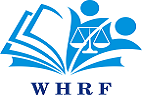KOSOVO*
The Kosovo Specialist Chambers in The Hague opened proceedings against senior Kosovo Albanian politicians and former Kosovo Liberation Army commanders suspected of crimes under international law during the 1998-1999 war. Few survivors applied for the pension awarded to victims of wartime sexual violence. Under restrictions and a curfew imposed by the government during the COVID-19 pandemic, discrimination against Roma continued and domestic violence rose.
Background
Following a no confidence vote, Prime Minister Albin Kurti’s government was replaced in June, without an election, by Avdullah Hoti’s government. However, in December, the Constitutional Court ruled the Assembly’s approval of this government unlawful.
In mid-March, the Kurti government introduced COVID-19-related restrictions and limited freedom of movement. The Hoti government lifted some restrictions, but in July reinstated curfews and other limitations. Inadequate health services and environmental factors produced disproportionately high COVID-19 mortality rates.
Right to truth, justice and reparation
Proceedings began at the Kosovo Specialist Chambers (KSC) established in The Hague in 2016. The court allowed victims to be party to the proceedings and to be eligible for reparations. In June, the Specialist Prosecutor’s Office (SPO) announced an unconfirmed indictment against President Hashim Thaçi, who resigned in November, before appearing before the KSC. He is indicted − along with former Kosovo Liberation Army (KLA) General Staff Kadri Veseli, Rexhep Selimi and Jakup Krasniqi − for war crimes and crimes against humanity, including the murder of around 100 civilians, including Serbs, Roma and ethnic Albanian opponents.
In September, the SPO summoned Agim Çeku, former Prime Minister and KLA commander, for questioning. In the same month, proceedings opened against former KLA commander Salih Mustafa, indicted for the arbitrary detention, cruel treatment, torture, and murder of civilians at Zllash detention camp in April 1999.
Confidential SPO files naming protected witnesses were anonymously leaked to the KLA War Veterans’ Organization; subsequently two officials were transferred to the court, and publicly indicted in December for the obstruction of justice, witness intimidation and secrecy violations.
In Kosovo, former Serbian police officer Darko Tasić was convicted in June of war crimes for his part in burning and dumping 100 bodies after the massacre in Krushe e Vogel/Mala Kruša village. The victims’ families protested the Appeals Court December decision to halve his 22 year sentence.
Enforced disappearances
On 30 August, International Day of the Disappeared, 1,643 people remained missing. In both the Serbian capital, Belgrade, and Pristina, families of missing Kosovo Serbs and Kosovo Albanians together called on their governments to open military archives to help identify burial sites.
Gender-based violence
In March, former Kosovo Serb police officer Zoran Vukotić was indicted by Kosovo prosecutors for the rape of a 16-year-old girl in the Mitrovica region in May 1999.
Only 200 victims of wartime sexual violence applied to the government commission established to decide on their survivor status and grant them a €230 monthly pension. Including some applications submitted in 2019, 222 applications were accepted and 69 rejected. Although the NGO Medica Gjakova had counselled over 4,500 rape survivors, only 300 of them had applied since 2018; many feared stigmatization or family disapproval.
Freedom of expression
Investigative journalists faced threats, slurs and attack. In June, the former Minister of European Integration opened a defamation suit against Jeta Xharra, director of the Balkan Investigative Reporting Network, KALLXO.com and Prishtina Insight. In July, Jeta Xharra was threatened by another former minister, and in September, former Prime Minister Ramush Haradinaj called journalists “mercenaries”. In October, journalist Shkumbin Kajtazi’s car was damaged by gunfire outside his home in Mitrovica.
Right to health
In September, the UN Special Rapporteur on hazardous substances urged the UN to provide “individual compensation and a public apology” to Kosovo Roma, Ashkali and Egyptians who suffered lead poisoning while living in UN-operated refugee camps situated on contaminated land.
The NGO Admovere reported in July that despite receiving additional social payments, Roma, Ashkali and Egyptians were disproportionately disadvantaged in accessing COVID-19 tests.
Violence against women and girls
Domestic violence cases increased in March by 36% over the previous year. By December, seven women had been killed by a partner or family member.
In June, Luljeta Alija opened a discrimination case against Pristina police who refused to file a complaint against her husband for violating a domestic violence protective order because she was “inappropriately dressed”.
